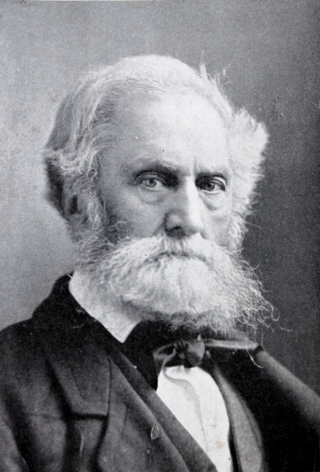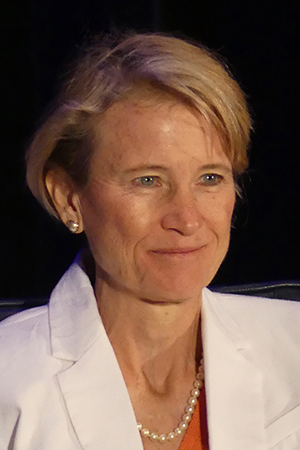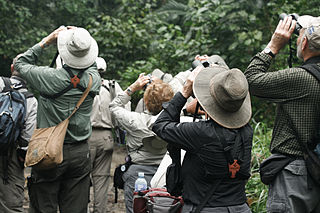
Clemson University is a public land-grant research university in Clemson, South Carolina. Founded in 1889, Clemson is the second-largest university by enrollment in South Carolina. For the fall 2019 semester, the university enrolled a total of 20,195 undergraduate students and 5,627 graduate students, and the student/faculty ratio was 18:1. Clemson's 1,400-acre campus is in the foothills of the Blue Ridge Mountains. The campus now borders Lake Hartwell, which was formed by the dam completed in 1962. The university manages the nearby 17,500-acre Clemson Experimental Forest that is used for research, education, and recreation.

Clemson is a city in Pickens and Anderson counties in the U.S. state of South Carolina. Clemson is home to Clemson University; in 2015, the Princeton Review cited the town of Clemson as ranking #1 in the United States for "town-and-gown" relations with its resident university. The population of the city was 17,681 at the 2020 census.

The federal government of the United States is the national government of the United States, a federal republic located primarily in North America, composed of 50 states, five major self-governing territories, several island possessions, and the federal district and national capital of Washington, D.C., where most of the federal government is based.

Thomas Green Clemson was an American politician and statesman, serving as Chargés d'Affaires to Belgium, and United States Superintendent of Agriculture. He served in the Confederate Army and founded Clemson University in South Carolina. Historians have called Clemson "a quintessential nineteenth-century Renaissance man."

Environmental studies is a multidisciplinary academic field which systematically studies human interaction with the environment. Environmental studies connects principles from the physical sciences, commerce/economics, the humanities, and social sciences to address complex contemporary environmental issues. It is a broad field of study that includes the natural environment, the built environment, and the relationship between them. The field encompasses study in basic principles of ecology and environmental science, as well as associated subjects such as ethics, geography, anthropology, public policy, education, political science, urban planning, law, economics, philosophy, sociology and social justice, planning, pollution control and natural resource management. There are many Environmental Studies degree programs, including a Master's degree and a Bachelor's degree. Environmental Studies degree programs provide a wide range of skills and analytical tools needed to face the environmental issues of our world head on. Students in Environmental Studies gain the intellectual and methodological tools to understand and address the crucial environmental issues of our time and the impact of individuals, society, and the planet. Environmental education's main goal is to instill in all members of society a pro-environmental thinking and attitude. This will help to create environmental ethics and raise people's awareness of the importance of environmental protection and biodiversity.

The Upstate is the region in the westernmost part of South Carolina, United States, also known as the Upcountry, which is the historical term. Although loosely defined among locals, the general definition includes the 10 counties of the commerce-rich I-85 corridor in the northwest corner of South Carolina. This definition coincided with the Greenville–Spartanburg–Anderson, SC combined statistical area, as first defined by the Office of Management and Budget (OMB) in 2015. In 2023, the OMB issued its most updated definition of the CSA that coincides again with the 10-county region.
Geoinformatics is the science and technology that develop and use data, software, and computing facilities in the cyberinfrastructure ecosystem to address the needs of geosciences and related branches of science and engineering.

Environmental psychology is a branch of psychology that explores the relationship between humans and the external world. It examines the way in which the natural environment and our built environments shape us as individuals. Environmental psychology emphasizes how humans change the environment and how the environment changes humans' experiences and behaviors. The field defines the term environment broadly, encompassing natural environments, social settings, built environments, learning environments, and informational environments. According to an article on APA Psychnet, environmental psychology is when a person thinks of a plan, travels to a certain place, and follows through with the plan throughout their behavior.

Heritage interpretation refers to all the ways in which information is communicated to visitors to an educational, natural or recreational site, such as a museum, park or science centre. More specifically it is the communication of information about, or the explanation of, the nature, origin, and purpose of historical, natural, or cultural resources, objects, sites and phenomena using personal or non-personal methods. Some international authorities in museology prefer the term mediation for the same concept, following usage in other European languages.

The Littlejohn Coliseum is a 9,000-seat multi-purpose arena in Clemson, South Carolina, United States. It is home to the Clemson University Tigers men's and women's basketball teams. It is also the site of Clemson graduations and the Clemson Career Fair. It is owned and operated by Clemson University and hosts more than 150 events per year including concerts, trade shows, galas, and sporting events.

Tara A. Smith is an American philosopher. She is a professor of philosophy, the BB&T Chair for the Study of Objectivism, and the Anthem Foundation Fellow for the Study of Objectivism at the University of Texas at Austin.

The Clemson Tigers are the athletic teams that represent Clemson University, located in Clemson, South Carolina. They compete as a member of the National Collegiate Athletic Association (NCAA) Division I level, primarily competing in the Atlantic Coast Conference (ACC) for all sports since the 1953–54 season. Clemson competes for and has won multiple NCAA Division I national championships in various sports, including ACC football, men's soccer, and men's golf.

The American Ceramic Society (ACerS) is a nonprofit organization of professionals for the ceramics community, with a focus on scientific research, emerging technologies, and applications in which ceramic materials are an element. Since its inception, ACerS has been committed to driving innovation, facilitating the exchange of knowledge, and fostering collaborations within the ceramics community. It is located in Westerville, Ohio.

Norman Irving Wengert was an American political scientist who wrote about the politics of natural resources, advanced a seminal theory of the "politics of getting", and had a number of significant roles in his public and academic career. He was born in Milwaukee, Wisconsin to Eugene F. and Lydia Semmann Wengert. He pioneered the revival of the study of political economy in the United States with publication of Natural Resources and the Political Struggle, and later authored more than fifty monographs and studies on the political economy and public administration of environmental resources. His scholarship explored the politics of natural resources and environmental policy formation and administration, with emphases in national energy policy, urban water planning and management, land use planning and controls, national forest management, and citizen participation in administrative processes.
In analytical chemistry, biomonitoring is the measurement of the body burden of toxic chemical compounds, elements, or their metabolites, in biological substances. Often, these measurements are done in blood and urine. Biomonitoring is performed in both environmental health, and in occupational safety and health as a means of exposure assessment and workplace health surveillance.
Health Disparities Centers are institutions in the United States that cover a broad range of needs and focus areas to decrease currently disproportionate illness and disease rates that lead to health disparities. They also promote the engagement, empowerment and recruitment of underrepresented populations in health professions. Many programs devote significant resources to developing cultural competency training to promote the delivery of culturally sensitive healthcare by faculty and staff, as well as current and future healthcare providers. These services are usually tailored to meeting specific goals or missions of the individual components common in most of the operating Health Disparities Centers.

The Underwater Archaeology Branch (UAB) of the Naval History & Heritage Command (NHHC) is a unit of the United States Department of the Navy. It was formally founded in 1996 as a consequence of the emerging need to manage, study, conserve, and curate the U.S. Navy's submerged cultural resources.
Peter Skewes is an American university professor and political activist best known for his candidacy for president of the United States as the nominee of the American Party of South Carolina in the 2016 presidential election.

Joseph Drew Lanham is an American author, poet and wildlife biologist who in 2022 entered the MacArthur Fellows Program for his work "combining conservation science with personal, historical, and cultural narratives of nature." Raised in Edgefield, South Carolina, Lanham studied zoology and ecology at Clemson University, where he earned a PhD in 1997. Lanham received his B.A. and M.S. in zoology, and his Ph.D. in Forest Resources. He also currently holds an endowed chair as an Alumni Distinguished Professor. He was also named an alumni master teacher in 2012. He is currently a professor of wildlife science and teaches several classes and lectures on birding. He describes his work in his own words as: "’Connecting the conservation dots’ is how I envision my research mission. My past work has focused on the impacts of forest management and other human activities on songbirds, herpetofauna, small mammals and butterflies. More recently I've begun to investigate how ethnicity relate to wildlife and other conservation issues. I'm also interested in how birders and hunters might bridge philosophical gaps to effect conservation in a more holistic way."














